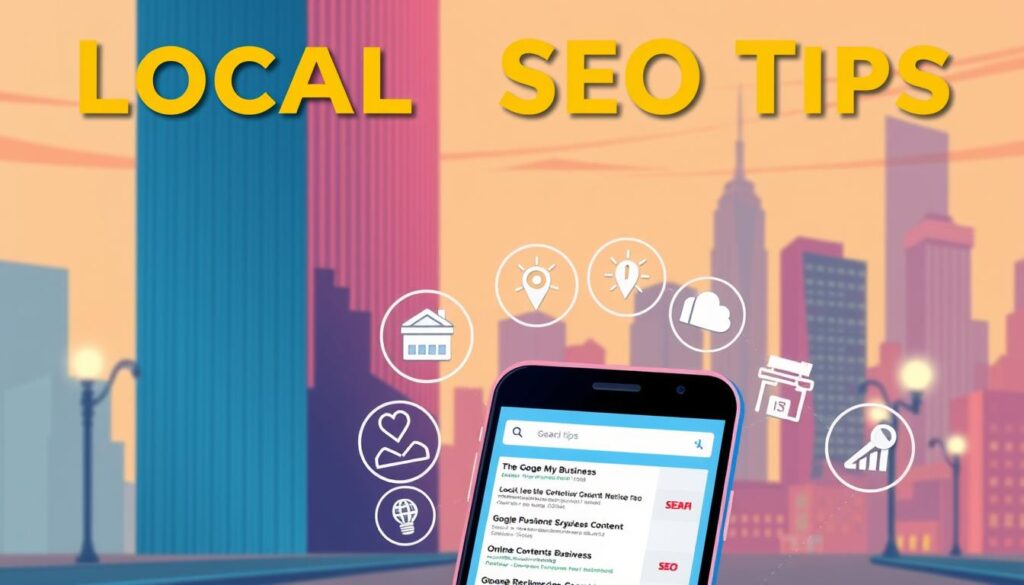In today’s competitive market, identifying high-potential leads is crucial for sales success. The right lead scoring tools can transform your team’s productivity by prioritising leads effectively. By implementing advanced scoring systems, you can predict which prospects are more likely to convert, ensuring your efforts are focused where they matter most.
Leading sales teams rely on effective lead scoring to streamline their processes and enhance ROI. With the best lead scoring tools, you can improve sales efficiency and manage leads more effectively. This section introduces you to top-tier solutions designed to elevate your sales strategy.
Key Takeaways
- Discover leading lead scoring tools to enhance your sales strategy.
- Learn how advanced scoring systems predict high-potential leads.
- Understand why top sales teams depend on effective lead scoring.
- Explore key benefits like improved efficiency and better lead management.
- Gain insights into how these tools boost your ROI.
Introduction
In the fast-paced world of sales and marketing, managing a large volume of leads can be overwhelming. Without a clear strategy, it’s easy to lose track of which prospects are most likely to convert. This is where advanced scoring systems come into play, helping you identify high-potential leads efficiently.
Predictive lead scoring is a game-changer for sales teams. By analysing behavioural data and historical trends, it helps differentiate between promising prospects and those less likely to convert. This insight allows you to focus your efforts where they matter most, saving time and resources.
Effective scoring software also bridges the gap between sales and marketing teams. By aligning both departments around a common scoring framework, you can ensure everyone is working towards the same goals. This collaboration not only improves efficiency but also enhances overall performance.
Investing in lead scoring technology offers numerous benefits. It streamlines your sales process, improves lead management, and provides valuable insights to boost your ROI. This guide will walk you through the top-tier solutions available, helping you make an informed decision for your business.
| Feature | Benefit | Importance |
|---|---|---|
| Predictive Analytics | Identifies high-potential leads | High |
| Customisable Models | Adapts to your business needs | High |
| Real-Time Insights | Enables timely decision-making | Medium |
| CRM Integration | Seamless data flow | High |
By the end of this guide, you’ll have a clear understanding of how to leverage these tools to elevate your sales strategy and drive growth.
Understanding Lead Scoring
Lead scoring is a systematic approach that helps your sales team prioritise leads based on predefined criteria. By using a scoring model, you can objectively rank prospects, making it easier to identify those who are more likely to convert. This method ensures that your efforts are focused on high-potential leads, streamlining your sales process and improving overall efficiency.
At its core, lead scoring involves measuring both explicit and implicit data. Explicit data includes information like job title or company size, while implicit data might involve behavioural patterns, such as website visits or engagement with your content. By analysing these factors, you can create a comprehensive scoring model that reflects the true quality of each lead.
A well-crafted scoring model can significantly enhance your lead management strategy. It allows your sales team to allocate resources more effectively, ensuring that no high-potential opportunities are overlooked. For instance, by aligning your scoring model with your team’s goals, you can create a more efficient sales pipeline and improve overall performance.
One of the key benefits of lead scoring is its ability to evolve. What starts as a basic evaluation process can gradually incorporate more sophisticated elements, such as predictive analytics. This transition not only enhances the accuracy of your scoring model but also provides deeper insights into customer behaviour and preferences.
By implementing a robust lead scoring system, you can transform how your sales team operates. It’s not just about identifying leads—it’s about nurturing the right ones to drive real results. For more insights on how to refine your approach, explore our guide on rank tracking software for agencies, which offers valuable tools to enhance your lead management strategy.
What is Lead Scoring Software?
Lead scoring software is a powerful tool designed to automate and streamline the process of evaluating potential customers. It integrates seamlessly with your CRM and email marketing systems, making it easier to manage your marketing automation efforts effectively.
This scoring tool works by analysing various data points, such as a prospect’s behaviour and demographic information, to generate a real-time score. This score helps you identify which leads are more likely to convert, allowing you to focus your efforts on nurturing those leads.
By automating the scoring process, you reduce the need for manual checks and ensure timely follow-ups. Plus, with customisable criteria, you can tailor the system to fit your specific business needs.
Key features of lead scoring software include:
- Integration with CRM and email marketing platforms for enhanced lead tracking and segmentation
- Real-time scoring based on behavioural and demographic data
- Customisable scoring criteria to align with your business goals
- Automation capabilities to reduce manual effort and improve efficiency
With lead scoring software, you can streamline your marketing automation strategy, improve lead management, and ultimately drive better sales results.
Benefits of Effective Lead Scoring
Implementing a well-structured lead scoring system can significantly enhance your sales strategy and overall business performance. By focusing on quality leads, your team can allocate resources more effectively, leading to higher conversion rates and improved efficiency.
One of the primary advantages of a lead-based approach is its ability to refine your marketing and sales strategies. By prioritising leads that are more likely to convert, you reduce the time spent on less promising prospects. This not only saves time but also increases overall sale conversion rates, ensuring your efforts are directed where they matter most.
Data-driven lead evaluation also plays a crucial role in improving internal communication. When both sales and marketing teams align around a common scoring framework, it fosters collaboration and ensures everyone is working towards the same goals. This harmonisation can lead to a more streamlined sales process and better overall performance.
Many leading companies have seen tangible results from effective lead scoring. For instance, a UK-based firm reported a 30% increase in sales efficiency after implementing a robust scoring system. This real-world example underscores the practical benefits of adopting such a strategy.
Boosting Sales Efficiency with Lead Scoring Tools
In the dynamic landscape of sales and marketing, maximising efficiency is key to success. Lead scoring tools offer a powerful solution to help businesses focus on the leads most likely to convert, thereby driving growth and improving overall performance.
Prioritise High-Potential Leads
Lead scoring tools enable you to identify and prioritise high-potential leads with precision. By analysing demographic data, such as job title or company size, and behavioural data, like website interactions or content engagement, these tools provide a clear view of which prospects are more likely to convert. This data-driven approach ensures that your sales team can allocate resources effectively, focusing on the most promising leads first.
| Feature | Traditional Approach | Data-Driven Approach |
|---|---|---|
| Lead Prioritisation | Time-consuming and subjective | Efficient and data-backed |
| Follow-Up Process | Manual and prone to delays | Automated and responsive |
| Sales Alignment | Lack of clear direction | Unified sales strategy |
Streamline Sales Follow-Up Process
Automation is at the heart of modern lead scoring tools, streamlining the sales follow-up process. By automating routine tasks, your team can respond to leads in real-time, improving responsiveness and reducing the chances of missing opportunities. Real-time updates and actionable insights provided by the software ensure that your sales team is always informed and prepared to act.
By implementing lead scoring tools, businesses can significantly boost their sales efficiency. Prioritising high-potential leads and streamlining the follow-up process not only saves time but also enhances overall productivity. These tools empower your team to focus on what truly matters—nurturing leads that are most likely to convert and driving sustainable growth.
Key Features to Look For in Lead Scoring Platforms
When evaluating lead scoring platforms, there are several key features that can make a significant difference in their effectiveness. These tools are designed to help you streamline your sales process and improve efficiency, but not all platforms are created equal.
Customisable Scoring Models
One of the most important features to look for is customisable scoring models. Every business is unique, and your lead scoring platform should reflect that. Customisation allows you to tailor the criteria to your specific needs, ensuring that the scores accurately reflect the quality of your leads. For example, you might want to assign more weight to certain behaviours or demographic factors that are particularly relevant to your industry.
With customisable models, you can adapt the system as your business evolves. This flexibility ensures that your lead scoring remains effective even as your goals and target market change over time.
Seamless CRM Integration
Seamless CRM integration is another essential feature to consider. Your lead scoring platform should work hand-in-hand with your existing CRM system, allowing for a smooth flow of data. This integration ensures that your sales team has access to all the information they need in one centralised location.
By integrating your lead scoring platform with your CRM, you can automate many routine tasks and improve the overall efficiency of your sales process. This not only saves time but also reduces the risk of errors that can occur with manual data entry.
| Feature | Benefit | Importance |
|---|---|---|
| Customisable Scoring Models | Adapts to your business needs | High |
| Seamless CRM Integration | Centralises and streamlines data | High |
| Real-Time Insights | Enables timely decision-making | Medium |
These features, along with real-time insights and robust analytics, can significantly enhance your sales and marketing operations. For more information on how to streamline your sales process, visit our guide on SEO tools for agencies.
Customisable Scoring Models and Integration Options
When it comes to refining your sales strategy, the ability to tailor your approach is essential. Customisable scoring models allow you to adapt your lead evaluation process to your unique business needs, ensuring that your efforts are focused on the most promising customers.
Advanced Integration Techniques
Modern integration techniques play a vital role in enhancing the accuracy of your lead data. By seamlessly connecting your marketing, CRM, and automation platforms, you can ensure real-time updates and a unified view of your customer interactions. This harmonisation not only improves data accuracy but also fosters collaboration across your team, ensuring everyone is aligned and working towards the same goals.
| Feature | Benefit | Importance |
|---|---|---|
| Customisable Models | Adapts to your business needs | High |
| Seamless Integration | Centralises and streamlines data | High |
| Real-Time Insights | Enables timely decision-making | Medium |
By implementing these advanced techniques, you can optimise your system’s performance and enhance overall efficiency. Your team will benefit from a more streamlined process, allowing you to focus on nurturing the leads that truly matter.
Real-Time Insights and Predictive Analytics
Understanding how real-time data and predictive analytics enhance decision-making is crucial for modern businesses. These technologies work together to improve accuracy and provide actionable insights, helping you make informed decisions quickly.
Machine learning plays a key role in updating lead scores as new behavioural data emerges. This dynamic approach ensures your strategies adapt to changing circumstances, keeping your efforts focused on the most promising opportunities.
| Feature | Benefit | Importance |
|---|---|---|
| Real-Time Insights | Enables timely decision-making | High |
| Predictive Analytics | Forecasts potential outcomes | High |
| Machine Learning | Adapts models based on new data | Medium |
Having a management tool that offers timely insights is vital for proactive sales strategies. These tools empower you with the information needed to drive revenue growth effectively. For more on enhancing your sales process, visit our guide on project management tools.
Ease of Use and Automation: Streamline Your Processes
Ease of use and intelligent automation are essential for making lead scoring systems both user-friendly and effective. A well-designed platform with an intuitive interface simplifies the adoption process, allowing your team to focus on what matters most—nurturing high-potential leads.
Automation plays a vital role in streamlining your daily sales and marketing processes. By automating routine tasks, you can respond to leads in real-time, reducing manual effort and ensuring timely follow-ups. This not only saves time but also enhances overall efficiency.
- Seamless integration with your existing tools ensures a smooth flow of data.
- Intuitive interfaces make it easy for your team to adopt and use the platform.
- Real-time insights enable proactive decision-making.
For instance, a company implementing a predictive lead scoring system reduced manual effort by 40% and saw a significant improvement in sales efficiency. When evaluating platforms, consider these aspects to ensure you choose a solution that aligns with your business needs.
Salesmate: Customisable Lead Scoring at Its Best
Salesmate stands out as a top-tier solution for businesses seeking tailored lead scoring solutions. Its robust features and flexible pricing make it an excellent choice for companies looking to enhance their sale efficiency. Whether you’re a small business or a larger enterprise, Salesmate offers the tools you need to streamline your sales process and improve performance.
Features and Pricing Overview
Salesmate is renowned for its customisable scoring models and seamless integration capabilities. Here’s an overview of what it offers:
- Automated scoring models that adapt to your business needs
- Integration with leading CRM systems for efficient data management
- Real-time insights to inform your sales strategy
The pricing structure is designed to accommodate different business sizes:
| Tier | Features | Price |
|---|---|---|
| Starter | Essential scoring tools, CRM integration | £25/user/month |
| Professional | Advanced automation, custom reports | £50/user/month |
| Enterprise | Full integration, priority support | Custom quote |
Pros and Cons
Like any product, Salesmate has its strengths and areas for improvement:
- Pros:
- Highly customisable models to fit your needs
- Excellent integration with CRM systems
- User-friendly interface for easy adoption
- Cons:
- Steeper learning curve for advanced features
- Customer support could be more responsive
Despite these points, Salesmate remains a strong contender for businesses aiming to boost sale efficiency and performance.
HubSpot and Zapier: AI and Automation Driven Solutions
In today’s fast-paced business environment, leveraging AI and automation is crucial for streamlining operations and enhancing efficiency. HubSpot and Zapier stand out as powerful tools that blend automation with sophisticated analytics, offering robust solutions for both marketing and sales teams.
Leveraging Machine Learning
HubSpot’s predictive lead scoring is a prime example of how machine learning can refine lead criteria continuously. By analysing vast amounts of data, HubSpot’s system evolves, ensuring that your business always targets the most promising leads. This intelligent approach not only saves time but also improves the accuracy of your lead evaluation process.
Zapier, on the other hand, excels in automating workflows between various applications. This seamless integration enables businesses to manage leads more efficiently, reducing manual effort and ensuring that no opportunity is missed. Zapier’s automation capabilities are particularly useful for streamlining lead nurturing and campaign efficiency, as it connects disparate tools into a cohesive system.
By combining automation with rich data insights, these tools provide timely and actionable information. For instance, businesses can automate routine tasks, allowing teams to focus on high-value activities. This synergy of automation and data ensures that your business remains proactive and competitive.
- HubSpot’s predictive lead scoring continuously refines criteria using machine learning.
- Zapier automates workflows across applications for seamless lead management.
- Automation and data insights deliver timely information for informed decisions.
- Examples show improved lead nurturing and campaign efficiency.
- Evaluation helps compare AI-powered systems in modern marketing.
These AI-driven solutions not only enhance efficiency but also provide a competitive edge, making them indispensable for modern businesses.
Salesforce and Leadfeeder: Enterprise-Level Lead Management
For large enterprises managing complex sales funnels, selecting the right tools is crucial. Salesforce and Leadfeeder emerge as top choices, each offering unique strengths that cater to different aspects of lead management.
In-Depth Product Comparison
Salesforce excels with its AI-powered scoring and robust CRM integration, making it a favourite for enterprises needing advanced data management. Leadfeeder, on the other hand, shines with its website visitor tracking, providing invaluable insights into potential leads.
Both platforms offer customisable scoring models, allowing businesses to tailor their approach. Salesforce’s integration with various CRM systems ensures seamless data flow, while Leadfeeder’s focus on behavioural data helps in identifying high-potential leads more accurately.
When considering scalability, Salesforce is known for its flexibility, adapting well to growing businesses. Leadfeeder, while powerful, may require more setup for larger operations. Understanding these differences helps in choosing the right tool for your specific needs.
By evaluating these options, you can select a system that aligns with your business goals, ensuring efficient lead management and improved sales performance.
Keap, Pipedrive & monday.com: Versatile and User-Friendly Options
Discover how Keap, Pipedrive, and monday.com provide adaptable solutions for businesses of all sizes. These platforms stand out for their intuitive designs and seamless integration capabilities, making them ideal for enhancing your sales and marketing efforts.
Integration and User Experience
Keap, Pipedrive, and monday.com are renowned for their user-friendly interfaces and customisable features. These platforms integrate effortlessly with email marketing tools and automation systems, ensuring a smooth workflow. For example, Keap’s automated email campaigns can significantly boost your revenue generation by nurturing leads more effectively.
With monday.com, you gain real-time insights into your sales pipeline, allowing you to make informed decisions quickly. Pipedrive, on the other hand, offers a streamlined user experience with its intuitive dashboard, making it easier to manage leads and track revenue growth.
Real-Life Benefits
- Keap’s integration with email marketing tools enhances lead nurturing and conversion rates.
- Pipedrive’s intuitive dashboard provides clear insights, improving revenue tracking.
- Monday.com’s automation features streamline workflows, boosting overall efficiency.
By implementing these platforms, businesses can expect improved lead conversion and increased revenue. Their adaptability ensures they cater to various business needs, making them valuable assets for any sales and marketing strategy.
ActiveCampaign, SugarCRM, and LeadSquared: Integrating Marketing and Sales
Discover how ActiveCampaign, SugarCRM, and LeadSquared seamlessly integrate marketing automation with detailed analytics, helping businesses align their marketing efforts with sales objectives. These platforms are designed to bridge the gap between marketing and sales teams, ensuring a cohesive approach to lead management.
Enhanced Marketing Automation
ActiveCampaign stands out for its advanced marketing automation capabilities, allowing businesses to create tailored campaigns that nurture leads effectively. SugarCRM, on the other hand, offers robust CRM features that ensure seamless data flow between marketing and sales. LeadSquared excels in capturing and tracking lead behaviour, providing actionable insights that guide your marketing strategy.
Robust Reporting and Analytics
Each platform offers comprehensive reporting tools that help measure campaign success and optimise future efforts. ActiveCampaign provides detailed analytics on email performance and customer journeys, while SugarCRM generates insightful sales reports. LeadSquared’s real-time dashboards allow for prompt decision-making, ensuring your strategies remain aligned with your business goals.
By integrating these tools, you can enhance communication between your marketing and sales teams, leading to improved conversion rates and a more streamlined sales process. Whether you’re focusing on the best lead management tools or seeking a versatile marketing automation platform, these solutions offer the perfect blend of functionality and insights to drive your business forward.
For more information on how to streamline your marketing efforts, visit our guide on influencer marketing software for agencies.
Advanced Strategies for Optimising Your Lead Scoring
To elevate your lead scoring strategy, consider diving deeper into behavioural insights and embracing continuous improvement. These advanced tactics will help refine your approach, ensuring your lead scoring platform remains effective and aligned with your business goals.
Behavioural Data Analysis
Analysing behavioural data provides valuable insights into lead quality and intent. By examining website interactions, content engagement, and other actions, you can identify patterns that indicate a higher likelihood of conversion. For instance, prospects who frequently visit pricing pages or download case studies may be more ready to buy. Incorporating this data into your lead scoring model helps prioritise leads more accurately.
Behavioural insights also reveal how leads interact with your brand over time. This longitudinal data can highlight shifts in interest or urgency, allowing your team to adapt their approach. Regularly reviewing and updating your model ensures it remains relevant and effective.
Continuous Improvement Tactics
Continuous improvement is key to maintaining an efficient operation. Regularly review and refine your lead scoring criteria to reflect changing market conditions and business objectives. This might involve adjusting weights for certain behaviours or incorporating new data points as they become available.
Testing different scenarios and gathering feedback from your sales team can further enhance your strategy. For example, A/B testing different scoring criteria can reveal what drives the best results. This iterative process ensures your lead scoring platform evolves with your business, keeping it optimised for long-term success.
| Feature | Traditional Approach | Data-Driven Approach |
|---|---|---|
| Behavioural Analysis | Superficial understanding of lead actions | Deep insights into intent and quality |
| Model Updates | Static and outdated criteria | Dynamic, regularly refined |
| Team Collaboration | Minimal feedback loop | Active input for improvement |
By integrating these strategies, you can create a lead scoring system that not only identifies high-potential leads but also adapts to your changing needs. For more on refining your approach, explore our guide on HubSpot AI lead scoring.
Conclusion
In conclusion, selecting the right tools and optimising their use can significantly impact your sales and marketing success. By leveraging an advanced automation platform, you can streamline your processes, improve efficiency, and focus on high-potential leads.
This guide has covered various aspects of lead scoring, from understanding its benefits to exploring top-tier solutions like Salesmate, HubSpot, and Salesforce. Each platform offers unique features, but the key is to choose one that aligns with your business goals and integrates seamlessly with your existing systems.
When selecting a solution, consider factors like customisable models, real-time insights, and ease of use. These elements will ensure your team can adopt the platform effectively and make data-driven decisions.
Finally, remember that the effectiveness of your automation platform depends on continuous refinement. Regularly update your criteria, analyse behavioural data, and stay proactive in your approach. By taking these steps, you can elevate your sales strategy and drive long-term growth.
FAQ
What is lead scoring, and how does it benefit my business?
Lead scoring is a method used to evaluate potential customers based on their behaviour, demographics, and engagement levels. It helps businesses prioritise high-potential leads, improving sales efficiency and conversion rates.
How does lead scoring software integrate with my existing CRM?
Most lead scoring tools seamlessly integrate with popular CRMs like Salesforce or HubSpot. This integration ensures your sales and marketing teams work with accurate, real-time data, enhancing overall performance.
Can I customise the scoring model to fit my business needs?
Yes, many platforms allow you to create customisable scoring models. This flexibility ensures you can tailor the criteria to match your specific business goals and target audience.
What role does machine learning play in predictive lead scoring?
Machine learning algorithms analyse historical data and behavioural patterns to predict which leads are more likely to convert. This predictive capability helps businesses make informed decisions and optimise their strategies.
How can I improve the accuracy of my lead scoring model?
Regularly updating your model with fresh data and refining your criteria based on performance insights can significantly enhance accuracy. Continuous improvement is key to maintaining an effective scoring system.
Is lead scoring suitable for small businesses?
Absolutely. Lead scoring tools are designed to be scalable, making them accessible to businesses of all sizes. They can help small businesses streamline their sales and marketing processes efficiently.
How does lead scoring improve sales and marketing alignment?
By providing a shared understanding of lead quality, lead scoring helps sales and marketing teams work together more effectively. This alignment ensures better communication and more targeted efforts.
Can I automate follow-up processes with lead scoring software?
Yes, many platforms offer automation features that trigger follow-up actions based on lead scores. This automation saves time and ensures timely engagement with potential customers.
How do I measure the success of my lead scoring strategy?
Track key metrics such as conversion rates, sales pipeline growth, and the accuracy of your scoring model. These indicators will help you assess the effectiveness of your strategy.
What are the key features I should look for in a lead scoring platform?
Look for customisable models, seamless CRM integration, real-time insights, and robust reporting tools. These features ensure you get the most out of your lead scoring efforts.
How long does it take to implement a lead scoring system?
Implementation time varies depending on the complexity of your setup. Simple systems can be up and running in a few days, while more advanced models may take a few weeks.
Can lead scoring software handle large volumes of data?
Yes, most modern lead scoring tools are designed to manage large datasets efficiently. They use advanced algorithms to process information quickly and accurately.
How secure is my data with lead scoring software?
Reputable platforms prioritise data security, using encryption and compliance certifications to protect your information. Always check a provider’s security measures before committing.
What training or support is available for lead scoring tools?
Many providers offer comprehensive training materials, customer support, and ongoing assistance to help you make the most of their platform.










